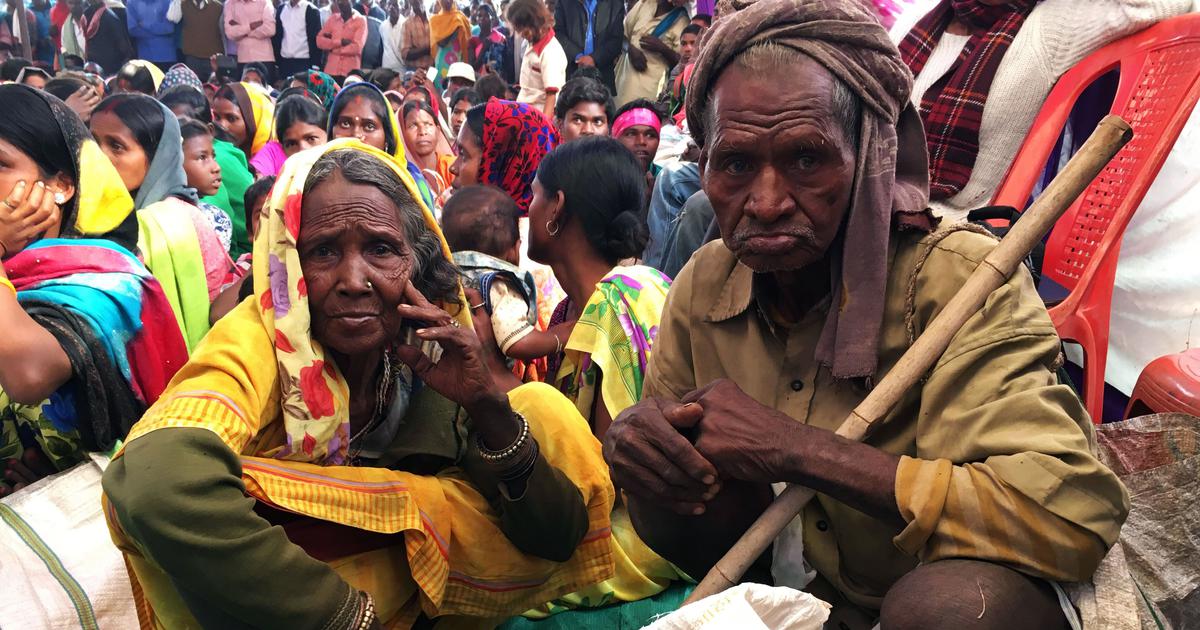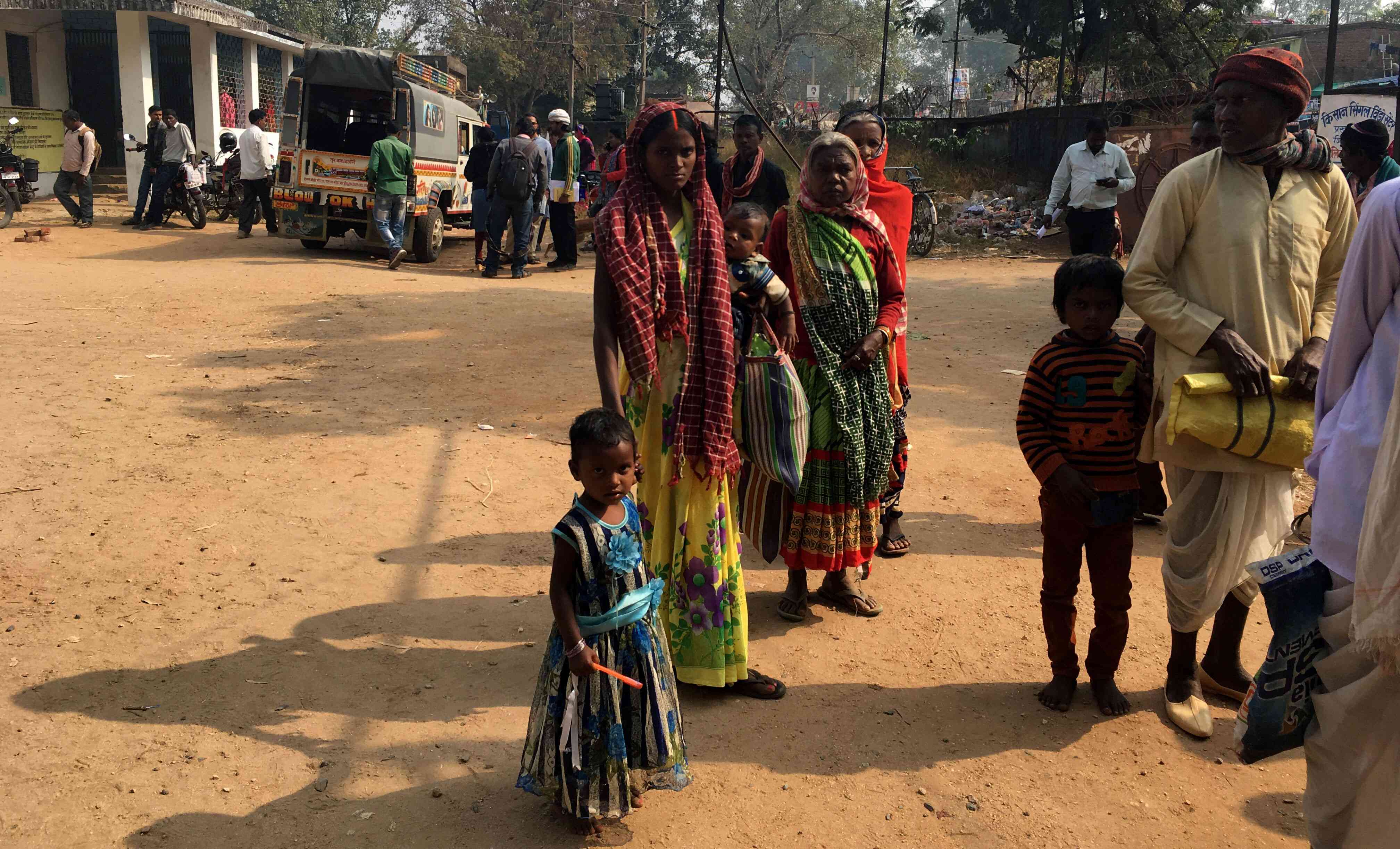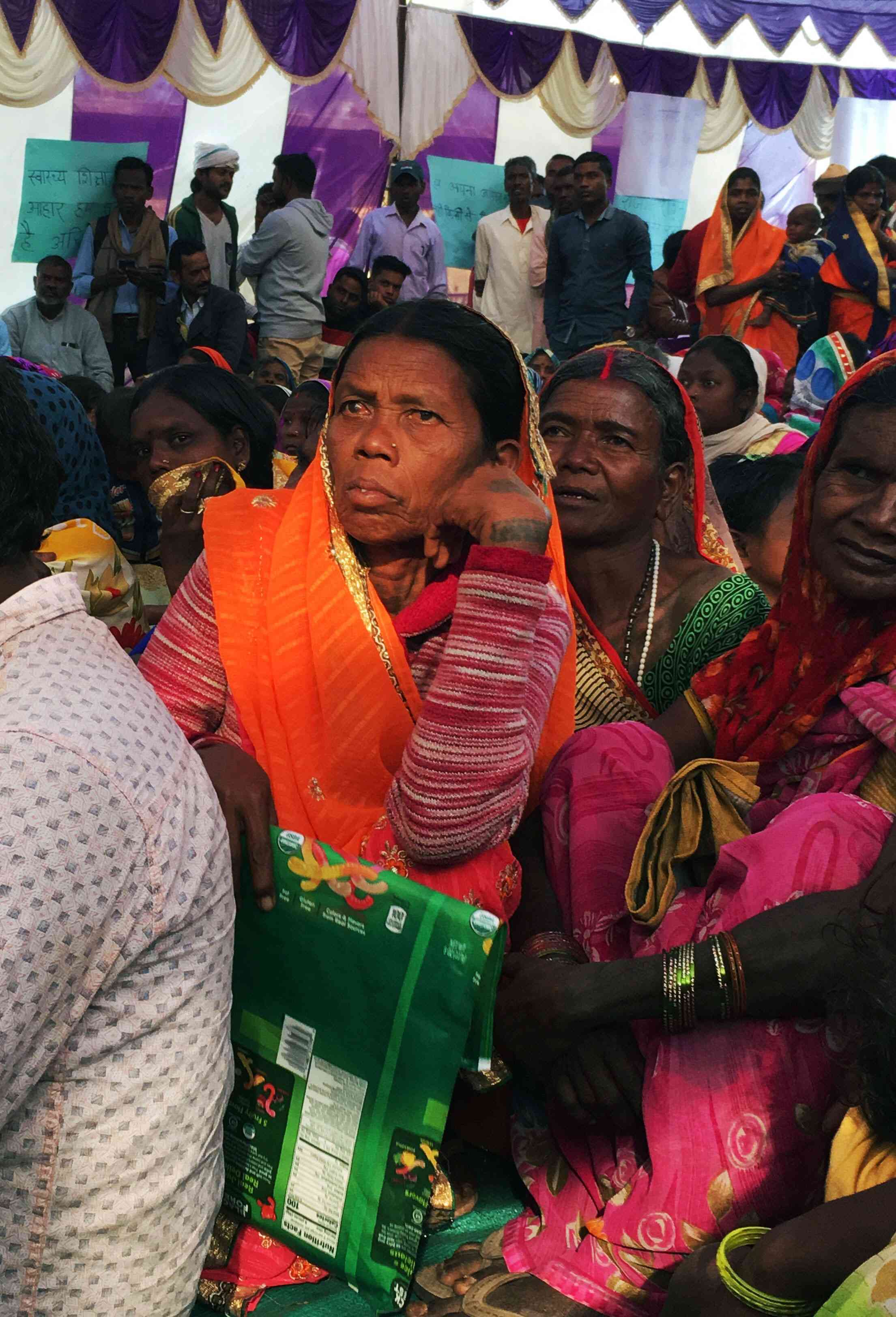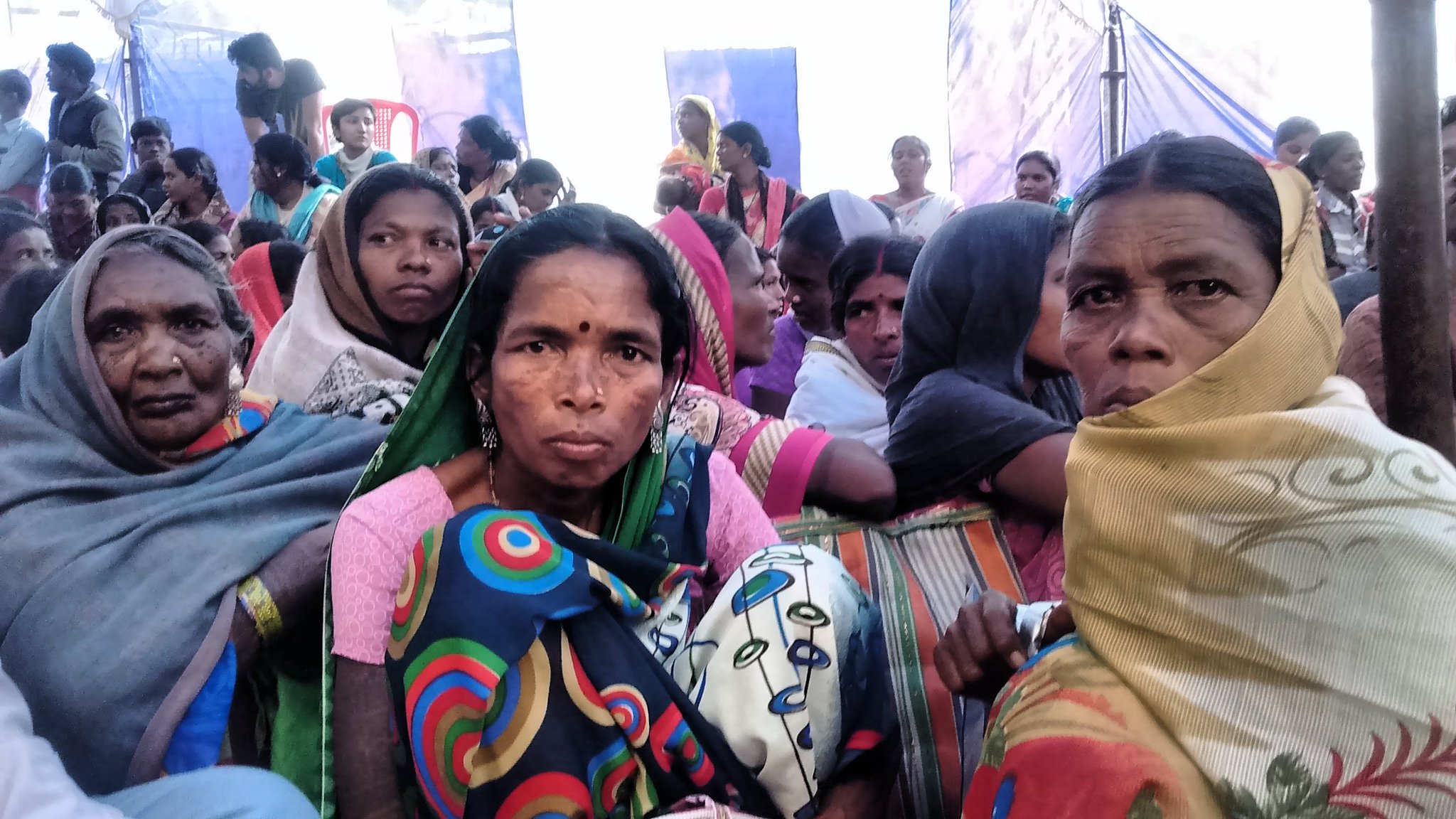
Jirua Parhaian and Dhaneshwar Parhaiya sat in front of the large crowd that had gathered to take stock of the effectiveness of public schemes in Jharkhand’s Manika block, under which which their village falls. They belong to the Parhaiya Adivasi community, which is classified as a “particularly vulnerable tribal group”. The elderly couple listened quietly while government officials acknowledged the problems that have prevented Parhaiya Adivasis from availing of government schemes meant for them.
Both were frail and walked with difficulty. But they had traveled to Manika, the block centre, 15 km from their village Uchvabal, to attend the meeting because they faced a dire predicament. “There is not enough food at home,” said Jirua Parhaian. She and her husband went to bed hungry at least a few nights every month. “Our ration card was cut without any explanation three years ago,” she said.
 Parhaiya Adivasi families arrived for a public hearing at Manika, Latehar
Parhaiya Adivasi families arrived for a public hearing at Manika, Latehar
The couple had carried with them their Aadhaar card bearing the 12-digit unique identity number attached to their biometric data that the government wants all Indian residents to have. They submitted the number to a kiosk manned by government staff at the public hearing. “What more do we have to do to get our rations of rice started again?” asked Dhaneshwar Parhaiya.
The government recognises Adivasis such as the Parhaiya and 70 other communities as particularly vulnerable tribal groups because of their precarious economic condition and dwindling populations.
These communities are also entitled to Antodaya ration cards meant for the “poorest of the poor”, which entitles them to 35 kg of rice at Re 1 per kg every month under the National Food Security Act. But they continue to face dire hunger and malnutrition.
In Jharkhand, which is going through a period of drought, these families are falling through the cracks in the absence of adequate social protection. A survey in November conducted among 324 Parhaiya households living in 15 villages in Latehar district found nearly 43% of the families had missed meals in the last three months because there was no food at home. The survey was carried out by National Rural Employment Guarantee Act Sahayata Kendras and Gram Swaraj Mazdor Sangh activists. The survey also showed that though the government has aggressively pushed Aadhaar as a way of streamlining welfare schemes and improving access to social security by providing everyone with an identity document, ground reality was different.
It found that Aadhaar, in fact, acted as a barrier to accessing social schemes. For instance, the survey found that 42% of Parhaiya families surveyed faced problems due to Aadhaar in the form of data entry errors, network glitches, biometric authentication failures or complications related to their failure to complete Know Your Customer norms for banks far removed from their hamlets.
Left out of social security
Traditionally, Parhaiya Adivasis survived by collecting forest produce such as honey and mahua flowers, roots such as gethia and kanda, and by making bamboo brooms, said Mahavir Parhaiya, an activist in Latehar district, which Manika block is part of. “But the dense forests are now gone,” he said. “The government made forests into plantations, handing them to contractors. Now our people struggle to find the jadi[roots] or saag[vegetables] that we survived on.”
This is one of the reasons why the community is dependent on government support to eat.
At the public hearing, several Adivasi families described corruption in schemes meant for them. Those who had ration cards said they frequently received less grain than they were entitled to despite having Aadhaar, which the government had introduced in the public distribution system in order to end pilferage.
Nearly a dozen Parhaiya women from Uchvabal and Pagar villages said they received only 30 kg or 31 kg of rice every month instead of their 35 kg entitlement. “After the surveyors came to the village, for the first time, yesterday the ration dealer Dinesh Rai gave [me] 35 kg rice,” Sugiya Devi told local officials at the hearing. She said the ration dealer had followed a “tin” system for years. “He fills two tins with ration and says we have got only this much,” she said. The tins were filled with grain and weighed at the meeting, while officials watched. They weighed only 31 kg.
The delivery of rations in tins also violates a system the Jharkhand government has put in place to ensure that families from particularly vulnerable tribal groups got their full entitlements, without any pilferage. Under the dakiya or post system, the ration dealer is required to deliver monthly food rations to such households at their doorsteps in sealed sacks clearly marked for such groups.
Read the full report here.

Dasiya Kunwar Parhaian said the customer service center kiosk operator meant to connect the residents to government services online demanded a bribe of Rs 2,000 for her pension application.
In December 2017, several Adivasi and Dalit families living in the same district, Latehar, at a public hearing in Manika block had described the problem of how their subsidised food rations had been abruptly stopped. The government in Jharkhand, like in several other states, had in 2017 asked for all ration cards to be linked with Aadhaar and mandated that only card holders whose fingerprints are authenticated online from the Aadhaar database would get subsidised grain.

Jirmunya Parhaiyan, Sumati Kunwar, Dasiya Kunwar, all Parhaiya PTG Adivasi, from Rankikala and Sedhra who could not access rice rations after Aadhaar linking errors, at the right to food public hearing at Manika in December 2017.
